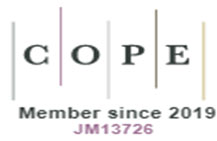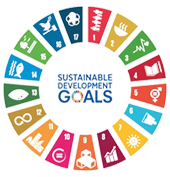Boby Leeladhara and Biju Mathew
Background: The pandemic changed healthcare priorities all over the world, resulting in increased pressure on healthcare workers. Studies conducted in other countries reveal a significant mental health burden of the pandemic on healthcare workers. However, only a few studies have focused on UK healthcare workers, which can demonstrate variations in healthcare systems from one country to another.
Purpose: To examine the mental health impacts of COVID-19 on frontline UK healthcare workers and point to interventions to mitigate and minimise mental health problems caused by the pandemic.
Methods: This review article used an interpretivist philosophy and an inductive approach. Electronic bibliographic databases were searched using relevant search terms. Primary studies published between 2020 and 2021 were selected. Only studies conducted in the United Kingdom were considered for inclusion.
Results: Ten studies were retrieved and critiqued. It was discovered that anxiety, depression, and Post Traumatic Stress Disorder were the most reported mental health issues among frontline UK
healthcare workers during the pandemic. Healthcare workers who experienced moral injury, the situation where moral dilemmas make healthcare workers feel incompetent, were at higher risk of developing the above mental health issues. These mental health issues had a negative impact on the healthcare workers’ work performance. This was predominantly due to the burnout, stress, and
low motivation. The health workers in UK preferred psychosocial support as the most favourable Mental Health support intervention. However, there were reported disparities in the provision and access of the mental health support intervention at various regions within UK health care system.
Conclusions: It was concluded that the COVID-19 pandemic had a significant mental health burden on frontline UK healthcare workers.
Al-Ghunaim, T., Johnson, J., Biyani, C. and O’Connor, D., (2021). Psychological and occupational impact of the COVID-19 pandemic on UK surgeons: a qualitative investigation. BMJ Open, 11(4), p.e045699.
Asnakew, S., Amha, H. and Kassew, T. (2021). Mental Health Adverse Effects of COVID-19 Pandemic on Health Care Workers in Northwest Ethiopia: A Multicentre Cross-
Sectional Study. [online] Neuropsychiatric Disease and Treatment. Available at: https://www.dovepress.com/ mental-health-adverse-effects-of-covid-19-pandemicon- health-care-work-peer-reviewed-fulltext-article-NDT.
Bansal, D. and Pathak, V., (2020). Personality as a Predictor of Occupational Stress General Health and Job Satisfaction among IT Professionals. Defence Life Science Journal, 5(1), pp.25-30.
Basias, N. and Pollalis, Y., (2018). Quantitative and qualitative research in business & technology: Justifying a suitable research methodology. Review of Integrative Business and Economics Research, 7, pp.91-105.
Bäuerle, A., Graf, J., Jansen, C., Musche, V., Schweda, A., Hetkamp, M., Weismüller, B., Dörrie, N., Junne, F., Teufel, M. and Skoda, E.-M. (2020). E-mental health mindfulness-based and skills-based “CoPE It” intervention to reduce psychological distress in times of COVID-19: study protocol for a bicentre longitudinal study. BMJ Open, 10(8), p.e039646.
Bhui, K., Dinos, S., Galant-Miecznikowska, M., de Jongh, B. and Stansfeld, S., (2016). Perceptions of work stress causes and effective interventions in employees working in public, private and non-governmental organisations: a qualitative study. BJPsych bulletin, 40(6), pp.318-325.
Billings, J., Abou Seif, N., Hegarty, S., Ondruskova, T., Soulios, E., Bloomfield, M., and Greene, T. (2021). What support do frontline workers want? A qualitative study of health and social care workers’ experiences and views of psychosocial support during the COVID-19 pandemic. PLOS ONE, 16(9), p.e0256454.
Brooks, S.K., Dunn, R., Amlôt, R., Rubin, G.J. and Greenberg, N. (2018). A Systematic, Thematic Review of Social and Occupational Factors Associated with Psychological Outcomes in Healthcare Employees During an Infectious Disease Outbreak. Journal of Occupational and Environmental Medicine, 60(3), pp.248–257.
Čartolovni, A., Stolt, M., Scott, P. and Suhonen, R., (2021). Moral injury in healthcare professionals: A scoping review and discussion. Nursing Ethics, 28(5), pp.590- 602.
Cheng, A., Kessler, D., Mackinnon, R., Chang, T., Nadkarni, V., Hunt, E., Duval-Arnould, J., Lin, Y., Pusic, M. and Auerbach, M., (2017). Conducting multicenter research in healthcare simulation: Lessons learned from the INSPIRE network. Advances in Simulation, 2(1).
Choudhury, T., Debski, M., Wiper, A., Abdelrahman, A., Wild, S., Chalil, S., More, R., Goode, G., Patel, B. and Abdelaziz, H., (2020). COVID-19 Pandemic: Looking After the Mental Health of Our Healthcare Workers. Journal of Occupational & Environmental Medicine, 62(7), pp. e373- e376.
De Kock, J.H., Latham, H.A., Leslie, S.J., Grindle, M., Munoz, S.-A., Ellis, L., Polson, R. and O’Malley, C.M. (2021). A rapid review of the impact of COVID-19 on the mental health of healthcare workers: implications for supporting psychological well-being. BMC Public Health, 21(1).
Denning, M., Goh, E., Tan, B., Kanneganti, A., Almonte, M., Scott, A., Martin, G., Clarke, J., Sounderajah, V., Markar, S., Przybylowicz, J et al. (2021). Determinants of burnout and other aspects of psychological wellbeing in healthcare workers during the Covid-19 pandemic: A multinational cross-sectional study. PLOS ONE, 16(4), p.e0238666.
Department of Health and Social Care, (2020). Record numbers of doctors and nurses working in the NHS. [online] GOV.UK. Available at: <https://www.gov.uk/ government/news/record-numbers-of-doctors-andnurses-working-in-the-nhs>.
Drissi, N., Ouhbi, S., Marques, G., de la Torre Díez, I., Ghogho, M. and Janati Idrissi, M., 2021. A Systematic Literature Review on e-Mental Health Solutions to Assist Health Care Workers During COVID-19. Telemedicine and e-Health, 27(6), pp.594-602.
Dykes, N., Johnson, O. and Bamford, P., (2021). Assessing the psychological impact of COVID-19 on intensive care workers: A single-centre cross-sectional UKbased study. Journal of the Intensive Care Society, p.175114372098318.
Eckman, S., Chew, R., Sanders, H. and Furberg, R., (2020). Collecting and using always-on location data in surveys. [online] Surveyinsights.org. Available at: <https://surveyinsights.org/?p=13330>.
Eriksen, M. and Frandsen, T., (2018). The impact of patient, intervention, comparison, outcome (PICO) as a search strategy tool on literature search quality: a systematic review. Journal of the Medical Library Association, 106(4).
Fiol-DeRoque, M., Serrano-Ripoll, M., Jiménez, R., Zamanillo-Campos, R., Yáñez-Juan, A., Bennasar- Veny, M., Leiva, A., et al.( 2021). A Mobile Phone– Based Intervention to Reduce Mental Health Problems in Health Care Workers During the COVID-19 Pandemic (PsyCovidApp): Randomized Controlled Trial. JMIR mHealth and uHealth, 9(5), p.e27039.
Frey, B., (2018). Response Rate. The SAGE Encyclopedia of Educational Research, Measurement, and Evaluation.
Gilleen, J., Santaolalla, A., Valdearenas, L., Salice, C.and Fusté, M., (2021). Impact of the COVID-19 pandemic on the mental health and well-being of UK healthcare workers. BJPsych Open, 7(3).
Gold, J., (2020). Covid-19: adverse mental health outcomes for healthcare workers. BMJ, p.m1815.
Greenberg, N., Weston, D., Hall, C., Caulfield, T., Williamson, V. and Fong, K., (2021). Mental health of staff working in intensive care during Covid-19. Occupational Medicine, 71(2), pp.62-67.
Hao, Q., Wang, D., Xie, M., Tang, Y., Dou, Y., Zhu, L., Wu, Y., Dai, M., Wu, H. and Wang, Q., (2021).
Prevalence and Risk Factors of Mental Health Problems Among Healthcare Workers During the COVID-19 Pandemic: A Systematic Review and Meta-Analysis. Frontiers in Psychiatry, 12.
Hennink, M., Hutter, I. and Bailey, A., (2020). Qualitative Research Methods. SAGE. Hines, S., Chin, K., Glick, D. and Wickwire, E., 2021. Trends in Moral Injury, Distress, and Resilience Factors among Healthcare Workers at the Beginning of the COVID-19 Pandemic. International Journal of Environmental Research and Public Health, 18(2), p.488.
Holmes, E., O’Connor, R., Perry, V., Tracey, I., Wessely, S., Arseneault, L., Ballard, C., Christensen, H., Cohen Silver, R., Everall, I., Ford, T., John, A., Kabir, T., King, K., Madan, I., Michie, S., Przybylski, A., Shafran, R., Sweeney, A., Worthman, C., Yardley, L., Cowan, K., Cope, C., Hotopf, M. and Bullmore, E.,(2020).
Multidisciplinary research priorities for the COVID-19 pandemic: a call for action for mental health science. The Lancet Psychiatry, 7(6), pp.547-560.
Howards, P.,(2018). An overview of confounding. Part 1:the concept and how to address it. Acta Obstetricia et Gynecologica Scandinavica, 97(4), pp.394-399.
Hummel, S., Oetjen, N., Du, J., Posenato, E., Resende de Almeida, R., Losada, R., Ribeiro, O., Frisardi, V., Hopper, L., Rashid, A., et al. (2021). Mental Health Among Medical Professionals During the COVID-19 Pandemic in Eight European Countries: Crosssectional Survey Study. Journal of Medical Internet Research, 23(1), p.e24983.
Johnston, K., Lakzadeh, P., Donato, B. and Szabo, S.,(2019). Methods of sample size calculation in descriptive retrospective burden of illness studies. BMC Medical Research Methodology, 19(1).
Khanal, P., Devkota, N., Dahal, M., Paudel, K. and Joshi, D. (2020). Mental health impacts among health workers during COVID-19 in a low resource setting: a cross-sectional survey from Nepal. Globalisation and Health, 16(1).
Kowal, M., Coll-Martín, T., Ikizer, G., Rasmussen, J., Eichel, K., Studzińska, A., Koszałkowska, K., et al. (2020).
Who is the Most Stressed During the COVID‐19 Pandemic? Data From 26 Countries and Areas. Applied Psychology: Health and Well-Being, 12(4), pp.946-966.
Lai, J., Ma, S., Wang, Y., Cai, Z., Hu, J., Wei, N., Wu, J., Du, H., Chen, T., Li, R., Tan, H., Kang, L., Yao, L., Huang, M., Wang, H., Wang, G., Liu, Z. and Hu, S., 2020. Factors Associated with Mental Health Outcomes Among Health Care Workers Exposed to Coronavirus Disease 2019. JAMA Network Open, 3(3), p.e203976.
Lamb, D., Gnanapragasam, S., Greenberg, N., Bhundia, R., Carr, E., Hotopf, M., Razavi, R., Raine, R., Cross, S., Dewar, A., Docherty, M., et al. (2021). Psychosocial impact of the COVID-19 pandemic on 4378 UK healthcare workers and ancillary staff: initial baseline data from a cohort study collected during the first wave of the pandemic. Occupational and Environmental
Medicine, 78(11), pp.801-808.
Long, H.A., French, D.P. and Brooks, J.M., (2020).
Optimising the value of the critical appraisal skills programme (CASP) tool for quality appraisal in qualitative evidence synthesis. Research Methods in Medicine & Health Sciences, 1(1), pp.31-42.
Lu, W., Wang, H., Lin, Y. and Li, L., (2020). Psychological status of medical workforce during the COVID-19 pandemic: A cross-sectional study. Psychiatry Research, 288, p.112936.
Marziniak, M., Brichetto, G., Feys, P., Meyding-Lamadé, U., Vernon, K. and Meuth, S.G. (2018). The Use of Digital and Remote Communication Technologies as
a Tool for Multiple Sclerosis Management: Narrative Review. JMIR Rehabilitation and Assistive Technologies, 5(1), p.e5.
Mrklas, K., Shalaby, R., Hrabok, M., Gusnowski, A., Vuong, W., Surood, S., Urichuk, L., Li, D., Li, X.- M., Greenshaw, A.J. and Agyapong, V.I.O. (2020).
COVID-19 pandemic: Prevalence of Perceived Stress, Anxiety, Depression, and Obsessive-Compulsive Symptoms vary among healthcare and non-Healthcare Workers in Alberta (Preprint). JMIR Mental Health.
Muller, A.E., Hafstad, E.V., Himmels, J.P.W., Smedslund, G., Flottorp, S., Stensland, S.Ø., Stroobants, S., Van de Velde, S. and Vist, G.E. (2020). The mental health impact of the covid-19 pandemic on healthcareworkers, and interventions to help them: A rapid systematic review. Psychiatry Research, 293, p.113441.
Neria, YY (2021). The COVID-19 and Healthcare Workers: An Active Intervention. [online] clinicaltrials.gov. Available at: https://clinicaltrials.gov/ct2/show/
NCT04497415.
Pappa, S., Ntella, V., Giannakas, T., Giannakoulis, V., Papoutsi, E. and Katsaounou, P., (2020). Prevalence of depression, anxiety, and insomnia among healthcare workers during the COVID-19 pandemic: A systematic review and meta-analysis. Brain, Behavior, and Immunity, 88, pp.901-907.
Plasse,M., (2020). Psychosocial support for providers working high-risk exposure settings during a pandemic: A critical discussion. Nursing Inquiry, 28(4).
Priede, A., López-Álvarez, I., Carracedo-Sanchidrián, D. and González-Blanch, C., (2021). Mental health interventions for healthcare workers during the first wave of COVID-19 pandemic in Spain. Revista de Psiquiatría y Salud Mental, 14(2), pp.83-89.
Rahi, S. (2017). Research Design and Methods: A Systematic Review of Research Paradigms, Sampling Issues and Instruments Development. International Journal of Economics & Management Sciences, 06(02).
Rahman, A. and Plummer, V., (2020). COVID-19 related suicide among hospital nurses; case study evidence from worldwide media reports. Psychiatry Research, 291, p.113272.
Rajkumar, R.P. (2020). COVID-19 and mental health: A review of the existing literature. Asian Journal of Psychiatry, 52(102066), p.102066.
Remuzzi, A. and Remuzzi, G., (2020). COVID-19 and Italy: what next? The Lancet, 395(10231), pp.1225-1228.
Ryan, G., (2018).Introduction to positivism, interpretivism and critical theory. Nurse Researcher, 25(4), pp.41-49.
Sacred Heart University Library (2011). Research Guides: Organising Academic Research Papers: Types of Research Designs.
Selikowitz, A. (2020). Mental health challenges for healthcare staff during the COVID-19pandemic- Management strategies. [online] Psych Scene Hub. Available at:
https://psychscenehub.com/psychinsights/mentalhealth- challenges-healthcare-workers-during- covid-19-pandemic-management-strategies/ .
Shankar, P., Davenport, M., Woolen, S., Carlos, R. and Maturen, K., (2018). Survey Research. Academic Radiology, 25(6), pp.751-756.
Sharma, G., (2017). Pros and cons of different sampling techniques. International Journal of Applied Research, 3(7), pp.749-752.
Siddiqui, I., Aurelio, M., Gupta, A., Blythe, J. and Khanji, M., (2021). COVID-19: Causes of anxiety and wellbeing support needs of healthcare professionals in the UK: A cross-sectional survey. Clinical Medicine, 21(1), pp.66-72.
Sileyew, K.J. (2019). Research Design and Methodology. Text Mining – Analysis,Programming and Application [Working Title]. [online] Available at: https://www.intechopen.com/online-first/research-design-andmethodology.
Sirois, F.M. and Owens, J., (2021). Factors associated with psychological distress in healthcare workers during an infectious disease outbreak: A rapid systematic review
of the evidence. Frontiers in psychiatry, 11, p.1591.
Skelly, A., Dettori, J. and Brodt, E., (2012). Assessing bias: the importance of considering confounding. Evidence- Based Spine-Care Journal, 3(01), pp.9-12.
Song, L. and Wang, N., (2017). The relationships between researchers and subjects in epidemiological studies. Zhonghua liu Xing Bing xue za zhi = Zhonghua Liuxingbingxue Zazhi, 38(11), pp.1445-1448.
Søvold, L.E., Naslund, J.A., Kousoulis, A.A., Saxena, S., Qoronfleh, M.W., Grobler, C. and Münter, L., (2021).
Prioritising the Mental Health and Well-Being of Healthcare Workers: An Urgent Global Public Health Priority. Frontiers in public health, 9.
Taherdoost, H., (2016). Validity and Reliability of the Research Instrument; How to Test the Validation of a Questionnaire/Survey in a Research. SSRN Electronic Journal.
Tan, B., Chew, N., Lee, G., Jing, M., Goh, Y., Yeo, L., et al. (2020). Psychological Impact of the COVID-19 Pandemic on Health Care Workers in Singapore. Annals of Internal Medicine, 173(4), pp.317-320.
Toit, E.D. (2021). LibGuides: Library – Information Literacy Module: 6 Search Strategies. [online] uj.ac.za.libguides.com. Available at: https://uj.ac.za.libguides.com/c.
php?g=581225&p=4011505.
Upadhyay, U. and Lipkovich, H., (2020). Using online technologies to improve diversity and inclusion in cognitive interviews with young people. BMC Medical
Research Methodology, 20(1).
Uphoff, E., Lombardo, C., Johnston, G., Weeks, L., Rodgers, M., Dawson, S., Seymour, C., Kousoulis, A. and Churchill, R., (2021). Mental health among healthcare workers and other vulnerable groups during the COVID-19 pandemic and other coronavirus outbreaks: A rapid systematic review. PLOS ONE, 16(8), p.e0254821.
Vasileiou, K., Barnett, J., Thorpe, S. and Young, T., (2018). Characterizing and justifying sample size sufficiency in interview-based studies: systematic analysis of qualitative health research over a 15-year period. BMC Medical Research Methodology, 18(1).
Wang, Y., Huang, G., Duke, G. and Yang, Y., (2017). Tai Chi, Yoga, and Qigong as Mind-Body Exercises. Evidence-Based Complementary and Alternative Medicine, 2017, pp.1-1.
Wanigasooriya, K., Palimar, P., Naumann, D.N., Ismail, K., Fellows, J.L., Logan, P., Thompson, C.V., Bermingham, H., Beggs, A.D. and Ismail, T. (2020). Mental health
symptoms in a cohort of hospital healthcare workers following the first peak of the COVID-19 pandemic in the U.K. BJPsych Open, 7(1).
Yan, J., Kim, S., Zhang, S.X., Foo, M.D., Alvarez-Risco, A., Del-Aguila-Arcentales, S. and Yáñez, J.A. (2021).
Hospitality workers’ COVID-19 risk perception and depression: A contingent model based on transactional theory of stress model. International Journal of
Hospitality Management, 95, p.102935.
Yechiam, E.and Yom-Tov, E.,(2021). Unique Internet Search Strategies of Individuals with Self-Stated Autism: Quantitative Analysis of Search Engine Users’ Investigative Behaviors. Journal of medical Internet research, 23(7), p.e23829.
Zhang, W., Wang, K., Yin, L., Zhao, W., Xue, Q., Peng, M., Min, B., Tian, Q., Leng, H., Du, J., Chang, H., Yang, Y., Li, W., Shangguan, F., Yan, T., Dong, H., Han, Y.,
Wang, Y., Cosci, F. and Wang, H., (2020). Mental Health and Psychosocial Problems of Medical Health Workers during the COVID-19 Epidemic in China. Psychotherapy and Psychosomatics, 89(4), pp.242-250.


